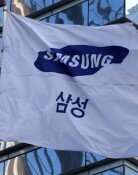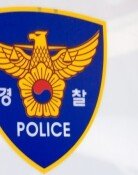The Economy to Begin Recovery Second Half of Next Year
The Economy to Begin Recovery Second Half of Next Year
Posted December. 08, 2001 11:47,
On November 7, Hankook Bank (HB) announced its prediction that next year`s GDP growth rate will be 3.9 percent, higher than this year`s 2.8 percent. HB made a more optimistic projection than Korea Development Institute, which increased its projected number to 3.6 percent, and other similar institutes.
As consumer and construction investments are showing favorable signs in the second half of the year, the prediction that export and infrastructure investments is likely to increase starting second half of next year raised the prospects.
▽ Recovery depends on the recovery of the U.S. economy = HB perceives the prospects to be good because there are positive signs in the manufacture and service sectors of the U.S. economy. The rationale is that the effects of lower interest rates and tax cuts in the American economy will lead to a significant recovery by the middle of next year. This in turn will lead the Korean economy, which is heavily dependent on exporting to the U.S., out of the tunnel of recession.
▽ Still ambiguous = Research institutes cautioned, "The status of the trends are more important than a simple prediction." Insofar as there is a good amount of uncertainty, a difference of 1 percent in projection is not significant. It is more important to find an `economic antidote` which can grasp the shifts in economic trends.
The uncertainty factors that researches are considering include the timeline for U.S. economic recovery, the factor of war with Afghanistan and other relevant events abroad, and the status of domestic financial market. Although the domestic sector is reviving under government-led financial investment but civilian investments are having difficulty due to these uncertainties.
▽ Political changes and the capacity to make economic adjustments are important for the second half = The Korea Economic Research Institute (KERI), the Korea Institute of Finance (KIF) and others warn that increased export and civilian investment next year may lead to an excessive boom. Even though the economy needs stimulation in the first half of next year, too fast a recovery may lead to a deficit in the current balance and prices may rise uncontrollably. HB also anticipates that the budget surplus will decrease by the second half of next year.
Furthermore, with the presidential elections in the second half of next year, the government may pursue a policy of restraint, which will make it difficult to turn around the pattern of economic management. Jung Han-Young, the chief researcher of the KIF, cautioned, "We cannot forget what happened after the 1988 Olympics when the economic adjustment failed and the budget incurred a deficit."
Park Rae-Jeong ecopark@donga.com







